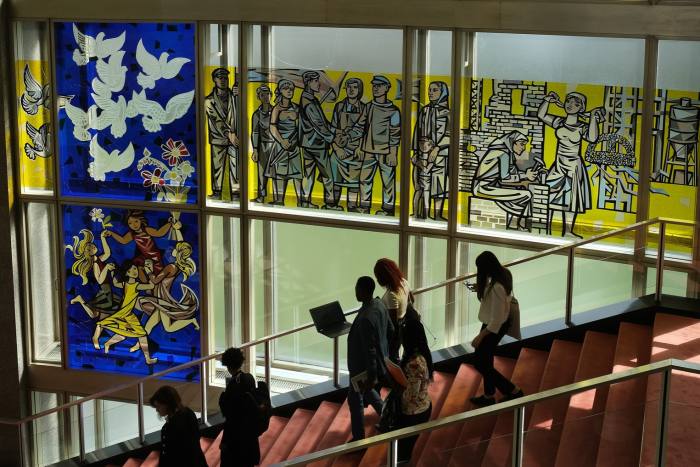I am a pharmacist, a painter and a freshly baked venture capitalist. I spent the first five years of my twenties studying science. I loved science, growing up; I loved the human body. And, having been born in India to Indian parents, a good education was always high on the list of priorities. That is how I ended up as a pharmacist.
Aside from India, I lived in Egypt for a while. Then, when I was 12, my mom and I moved to Italy, and I grew up in a very small town of about 8,000 people. I was the only Asian in class, both in middle and high school. Before then, I had only lived in big chaotic, bustling cities, like Cairo and New Delhi, so it was a culture shock.
It was in Italy, at the University of Milan, that I did my doctorate in pharmacy. I then started working at Abbott, the global healthcare company and, shortly after that, about two years ago, I was given a project to lead the commercialisation of a diagnostics start-up for heart disease.
It was quite a high-profile project and it gave me great exposure. I got to interact with the diagnostics start-up’s team, as we worked on integrating them into our portfolio, as well as Abbott’s corporate ventures department. I think that was the first time I had seen, at a company, a team that was solely focused on what the future would look like. That is when I realised where I wanted to be.
But I lacked that financial background and realised I needed to transition. I had always toyed with the idea of an MBA — I used to talk about it with my dad, who has always been my career guru.
European Business Schools Ranking of 2022

See which schools reached our league table of 95 course providers. Plus, read the rest of our coverage here.
The corporate world was amazing — it gave me a structured framework and mentors who are still on speed dial for any decision I need to take in life — but to move into venture capital I needed to step away from the corporate world. And, the more I grew, the more I realised how the corporate world can be quite restrictive and hierarchical — and I wanted to be in an entrepreneurial environment.
I chose to do my MBA at SDA Bocconi in Milan for three reasons. First, I was tired of travelling and wanted to come back home. Second, an MBA is also a huge financial investment, and picking a school with a good reputation can really help you land your dream job and pay off loans more quickly. Bocconi jumped significantly in the Financial Times rankings of business schools last year, which is why I decided to go for it. The programme received a massive boost and it is now competing on the same field as some of the big US players.
Third, I felt that Bocconi is essentially a people business. Its network in Italy and Europe is priceless, and I think that is embedded in its DNA. For example, the MBA cohort is about 100 people, but the teams you learn with change almost every term. That means you really maximise your people-learning skills — you are never in your comfort zone. And venture capital is all about networking. It is very much a hipster community where people love to talk, share experiences and mentor.
I also gained great hands-on experience by participating in the six-month MBA Impact Investing Network and Training, a programme where students from top business schools in the US and Europe learn to source and assess impact investments and then compete at a live pitch event. We had to imagine we were starting a fund: where did we want to invest? What would our criteria for investment look like? We then had to scout for companies that fitted those criteria. We spent a lot of time talking to founders, their advisers and potential customers.
Bocconi also helped me a lot by connecting me with the right people at the right time. I knew that I wanted to stay in healthcare investing and Bocconi’s careers service introduced me to people who had strong ties with European health-focused venture capital firms. That is, ultimately, how I secured my internship at Nina Capital in Barcelona.
I am now back in Milan and have just joined Sagana Capital as a senior investment manager. It is going to be very challenging — I still have so much to learn. Making a career switch has been a humbling experience. I will also continue my career as an abstract painter — I had my first exhibition this year in Milan. So, yes, I’m excited.
Credit: Source link


Comments are closed.